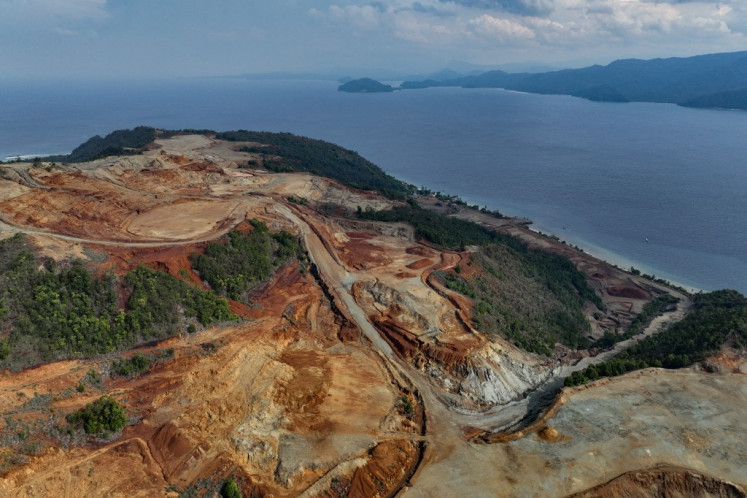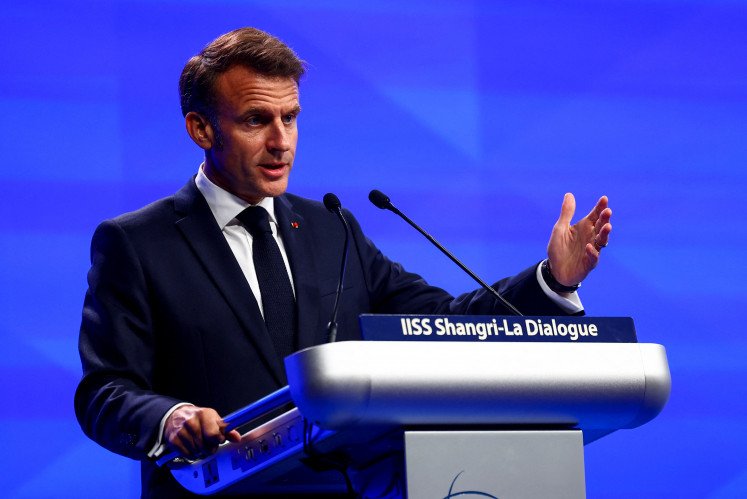Saka Energi set to sign $500m pledge
Saka Energi Indonesia â upstream arm of state-owned gas distributor Perusahaan Gas Negara (PGN) â is now ready for self-financing and will soon sign a facility commitment amounting to half a billion dollars
Change text size
Gift Premium Articles
to Anyone

S
aka Energi Indonesia ' upstream arm of state-owned gas distributor Perusahaan Gas Negara (PGN) ' is now ready for self-financing and will soon sign a facility commitment amounting to half a billion dollars.
Saka Energi chief financial officer Devi Pradnya said that her company ' which is in its third year of commercial operations ' had started to turn a profit last year, with a total of US$74 million
With positive cash flow already in hand, Devi said that her company was now considering other
sources of finance to fund its capital expenditure (capex), which could potentially hit $350 to 400 billion a year.
Her company, she said, was in fact looking to sign a syndicated facility commitment worth around $500 million later this year. She declined to name who the lenders were, only saying they are four foreign banks.
'The loans and the figure are still being negotiated, and it will be a facility commitment. We will probably take the loans gradually when we need them,' she said.
She said her company would likely use the loans for capex.
'Usually our capex comes from our parent company. Now we are ready to finance ourselves,' she added.
Saka Energi saw its top line rise from $34.84 million in 2013 to $297.8 million in 2014, according to PGN's annual report. The 2014 figure was equal to 9.77 percent of PGN's revenue in the reported period.
Saka Energi's revenue was $131.86 million in the first half of this year, an 11 percent decline from $151.8 million in the same period last year.
The decline was due to slipping oil prices, Devi said, and this year's performance might be slightly corrected from the previous year.
However, she said that she was optimistic that her company's performance would pick up in the coming years, arguing that 'oil prices are already at the bottom this year'.
Brent crude, a benchmark for more than half the world's oil, has recently begun to bounce back to above $50 per barrel, while in early 2014 the price was above $100 per barrel.
The company, as previously reported, is looking to boost its revenue contribution to its publicly listed parent to 50 percent by 2019, from its current contribution that only makes up around 9 percent of PGN's top line.
PGN has been aggressively expanding its upstream business through Saka Energi and to date, the subsidiary already owns participating assets in nine blocks. Its total assets as of June this year stood at $2.23 billion.
The company reported that it had recently discovered new oil and gas reserves in its wholly owned offshore Pangkah block in East Java, with oil output expected to reach 10,000 barrels of oil per day (bopd) and gas production to reach 30 to 50 million standard cubic feet per day (mmscfd). Production is expected to begin in 2017.
Last year, Saka Energi entered a deal to purchase a 36 percent stake in the Fasken block in Texas, US, from Swift Energy Co. in a deal worth $175 million.
Through Fasken, the company produced 12,000 barrels of oil equivalent per day (boepd), in line with its stake in the block, Saka Energi's operational director Tumbur Parlindungan said.
So far, the company has produced 31,000 boepd, more than its targeted output of 30,000 boepd and far above last year's production, which was below 20,000 boepd.









